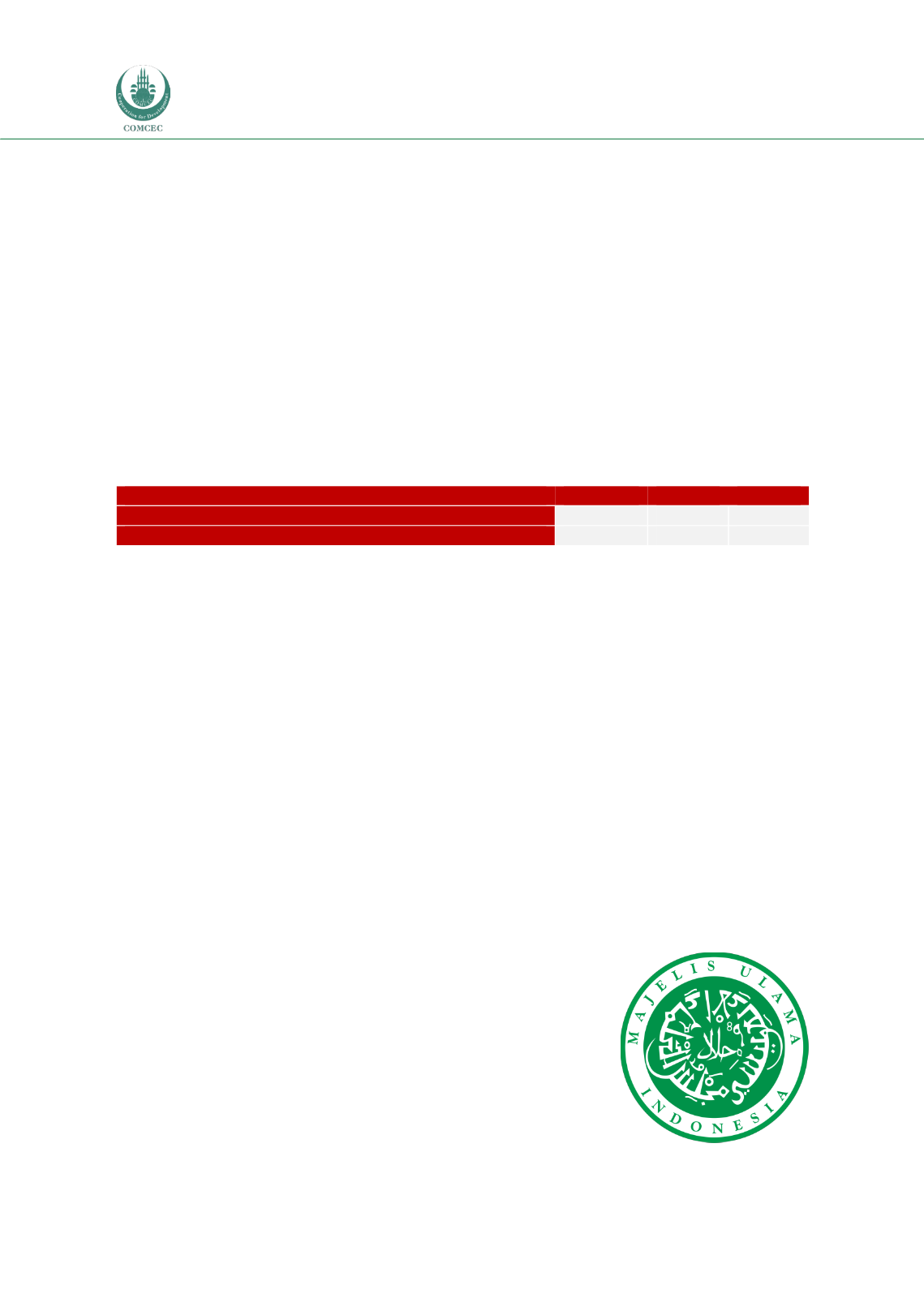

Muslim Friendly Tourism (MFT):
Understanding the Supply and Demand Sides
In the OIC Member Countries
72
3.2 Indonesia
Tourism in Indonesia is an important component of the Indonesian economy as well as a
significant source of its foreign exchange revenues. Indonesia is the world's most populous
Muslim-majority nation, at 87.2% in 2010. The country is a popular tourist destination; from
natural beauty, historical heritage to cultural diversity are key attractions. The tourism sector
is ranked as the 4th largest industry. Singapore and Malaysia are the top two sources of
visitors to Indonesia. Indonesia was ranked 6
th
world-wide in the Global Muslim Travel Index
(GMTI) 2015.
Muslim Tourist Arrivals
The number of Muslim arrivals at Indonesia has increased slightly in recent years. Table 21
shows inbound tourism for the years 2010 to 2020.
Table 21: Muslim visitor arrivals to Indonesia for the period 2010 to 2020
Year (Inbound Tourism)
2010
2014
2020
Inbound Muslim Visitor Arrivals (Millions)
0.90
1.16
1.74
Inbound Expenditure by Muslim Visitor (US$ Millions)
984
1,328
1,795
Source: CrescentRating, 2015
Indonesia is expected to witness an increase in the inbound Muslim tourist arrivals. The
overall tourism receipt of Indonesia has also increased in a steady pace. Based on estimation,
the receipt from Muslim tourism is around US$ 1.78 billion in 2020. Muslim visitor arrivals are
expected to grow in the next five years to reach 1.74 million by 2020. In 2014 the Muslim
tourist arrivals was 1.16 million. This translates into a growth rate of 11.4 percent. The
percentage of Muslim tourist visitors in 2014 was 13.3 percent of total arrivals and this would
increase to 17.7 percent in 2020.
Faith-based needs of Muslim Traveler
a)
Halal Food
Halal certification of restaurants is not as established in Indonesia as in Malaysia. Most local
foods are considered halal. However, in many places, there are no clear identification of Halal
food outlets. This has created some anxiety among Muslim visitors, especially those from South
East Asia, who are very conscious when it comes to Halal food. There has been discussion at
the government level to better streamline the Halal certification program.
Indonesia Ulema Council (MUI) is Indonesia's top Muslim clerical
body. The council comprises all Indonesian Muslim groups
including Nahdlatul Ulama (NU), Muhammadiyah. It was founded
in 1975 as a body to produce fatwā and to advise the Muslim
community on contemporary issues. Halal certification is currently
issued by MUI. Halal certificate is a requirement to get government
permit for halal labeling on the packaging of a product. During the
last few years, increasing number of halal food outlets are getting
Halal certification from MUI.
















